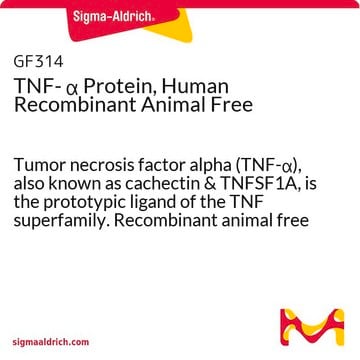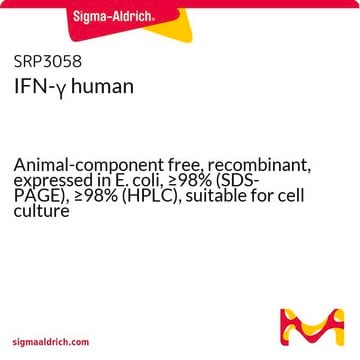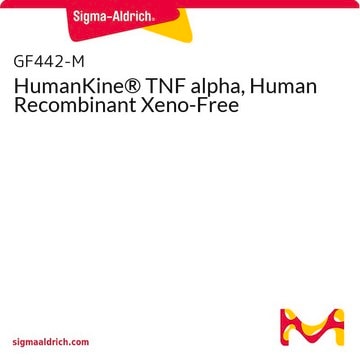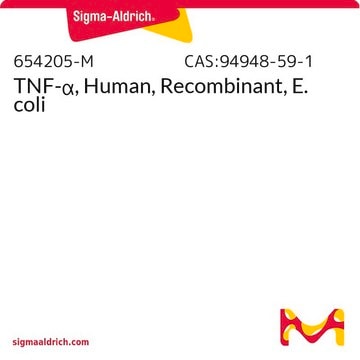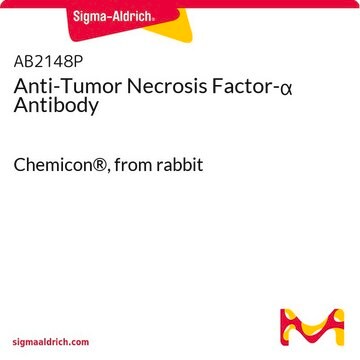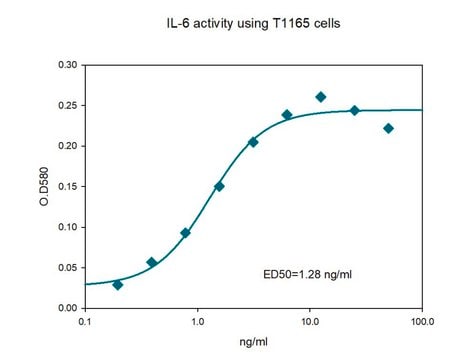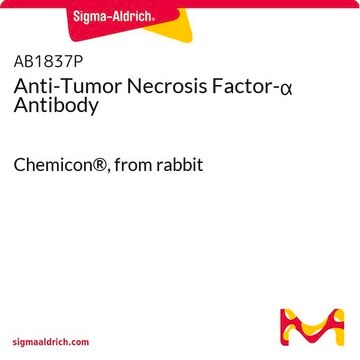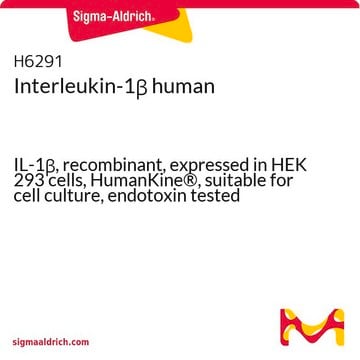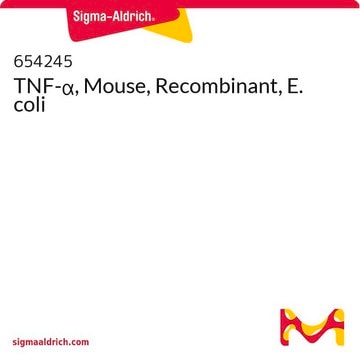SRP3177
TNF-α human
Animal-component free, recombinant, expressed in E. coli, suitable for cell culture
Sinonimo/i:
Cachectin, Cytotoxin, Differentiation-inducing factor (DIF), Necrosin, Tumor Necrosis Factor
Scegli un formato
Scegli un formato
About This Item
Prodotti consigliati
Origine biologica
human
Livello qualitativo
Ricombinante
expressed in E. coli
Saggio
≥95% (SDS-PAGE)
Stato
lyophilized
Potenza
≤0.10 ng/mL ED50
PM
17.4 kDa
Confezionamento
pkg of 50 μg
tecniche
cell culture | mammalian: suitable
Impurezze
≤1.00 EU/μg endotoxin
N° accesso UniProt
Condizioni di spedizione
wet ice
Temperatura di conservazione
−20°C
Informazioni sul gene
human ... TNF(7124)
Descrizione generale
Applicazioni
Azioni biochim/fisiol
Sequenza
Stato fisico
Ricostituzione
Stoccaggio e stabilità
Codice della classe di stoccaggio
13 - Non Combustible Solids
Classe di pericolosità dell'acqua (WGK)
WGK 3
Punto d’infiammabilità (°F)
Not applicable
Punto d’infiammabilità (°C)
Not applicable
Scegli una delle versioni più recenti:
Certificati d'analisi (COA)
Non trovi la versione di tuo interesse?
Se hai bisogno di una versione specifica, puoi cercare il certificato tramite il numero di lotto.
Possiedi già questo prodotto?
I documenti relativi ai prodotti acquistati recentemente sono disponibili nell’Archivio dei documenti.
I clienti hanno visto anche
Articoli
Discover answers to your frequently asked questions about animal component-free, xenobiotic-free, and chemically defined media and reagents for cell culture.
Active Filters
Il team dei nostri ricercatori vanta grande esperienza in tutte le aree della ricerca quali Life Science, scienza dei materiali, sintesi chimica, cromatografia, discipline analitiche, ecc..
Contatta l'Assistenza Tecnica.


